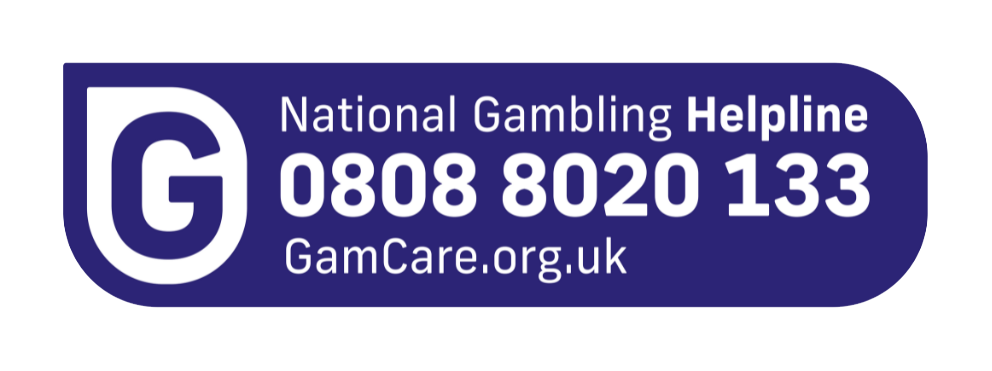Sports betting can be a fun and exciting way to engage with your favorite events, but like any form of entertainment, it’s important to approach it responsibly. Without proper management, sports betting can become a financial burden rather than a rewarding hobby. Whether you’re a beginner or an experienced bettor, understanding how to control your spending is crucial to maintaining a healthy and enjoyable betting experience.
What is Responsible Betting? 🤔
Responsible betting refers to placing bets in a controlled and mindful manner, ensuring that it doesn’t negatively affect your financial stability, relationships, or mental well-being. It’s all about setting boundaries, recognizing the signs of problematic behavior, and enjoying sports betting within your means.
By understanding your limits and making informed choices, you can avoid falling into the trap of overspending or chasing losses, which can lead to negative outcomes. Below are practical tips to help you control your spending while betting on sports.
1. Set a Budget Before You Bet 💰
One of the most effective ways to control your spending is by setting a budget before you start betting. This ensures that you only wager money you can afford to lose without affecting your other financial responsibilities.
Tips for Setting a Budget:
- Determine a monthly limit: Decide how much money you’re willing to spend on sports betting each month. Stick to this limit and avoid exceeding it, even if you’re on a winning streak.
- Divide your bankroll: If you have a larger budget, break it down into smaller amounts for each bet. This helps you to stay disciplined and not place overly risky or large bets.
Setting a budget helps prevent impulsive decisions and keeps you grounded in your betting activities.
2. Bet Only With What You Can Afford to Lose 💸
Sports betting should be an enjoyable pastime, not a way to make money. When placing bets, it’s essential to only wager money you can afford to lose. This ensures that you won’t put yourself in financial trouble if things don’t go as planned.
- Don’t use essential funds: Avoid using money that you need for bills, groceries, or any other essential expenses. Betting should never come at the expense of your basic financial obligations.
- Treat betting as entertainment: Think of your betting funds as a form of entertainment, much like paying for a concert ticket or movie. Only wager what you are comfortable losing without significant consequences.
3. Set Limits on Your Bets 🎯
Another way to control your spending is by setting limits on the size of your bets. This means determining a maximum amount you are willing to stake on any given bet and adhering to it, regardless of your excitement about the outcome.
Types of Betting Limits:
- Per Bet Limit: Decide the maximum amount you will place on a single bet. For example, you might limit yourself to betting no more than £50 on one event.
- Per Day/Week Limit: Set a cap on how much you can bet in a day or week. If you’ve reached your limit for the day, stop betting until the next day or week.
By keeping your bets within these limits, you can manage your overall risk and reduce the likelihood of overspending.
4. Track Your Bets and Losses 📊
It’s easy to lose track of your betting activity, especially when you’re caught up in the excitement of the game. However, keeping track of your bets and losses can give you a clearer picture of your betting habits and help you stay within your budget.
How to Track Your Bets:
- Use a betting diary or spreadsheet: Record each bet you place, along with the odds, stake, and outcome. This will help you see patterns in your betting behavior and identify areas where you may need to cut back.
- Monitor your losses: Keep track of your losses as well. If you’re consistently losing, it may be a sign that you need to reconsider your betting strategies or take a break.
Tracking your bets is an excellent way to stay accountable and evaluate whether your betting is within your financial limits.
5. Take Regular Breaks 🛑
Constantly being involved in sports betting can lead to emotional decision-making, which increases the chances of impulsive bets. Taking regular breaks helps maintain a healthy perspective and prevents you from betting when you’re feeling overly emotional or stressed.
Benefits of Taking Breaks:
- Stay clear-headed: Taking time away from betting helps you reset and come back with a clear mind. This can prevent you from chasing losses or making decisions based on temporary emotions.
- Reassess your strategy: A break allows you to reflect on your betting strategy and reassess your approach, which can help improve your long-term success.
It’s essential to take time off, especially after a losing streak, to maintain control over your betting behavior.
6. Avoid Chasing Losses 🚫
One of the most dangerous behaviors in sports betting is chasing losses. This occurs when you keep betting in an attempt to recover from previous losses, often leading to even greater losses. Chasing losses can quickly spiral out of control and result in financial and emotional harm.
How to Avoid Chasing Losses:
- Accept losses as part of the game: Remember, no bet is guaranteed to win. Accept that losses are a natural part of sports betting and avoid making impulsive bets to try to “get back” your lost money.
- Stop betting when on a losing streak: If you find yourself on a losing streak, it might be best to take a step back, re-evaluate your strategy, and return to betting when you feel more grounded.
Avoiding the temptation to chase losses will help you maintain control over your betting behavior and minimize unnecessary financial risk.
7. Seek Help if Needed 🆘
If you feel that your betting is becoming a problem, or you’re struggling to control your spending, there are resources available to help. Many organizations offer support for individuals who may be developing a gambling problem.
Resources to Consider:
- GamCare: A UK-based organization offering support and advice for those affected by gambling-related issues.
- Gambling Therapy: Provides online support and forums for individuals seeking help with gambling problems.
- Self-exclusion programs: Many betting sites offer self-exclusion options, allowing you to block yourself from placing bets for a period of time.
If you feel that your sports betting is no longer fun and is negatively impacting your life, don’t hesitate to seek help.






No responses yet